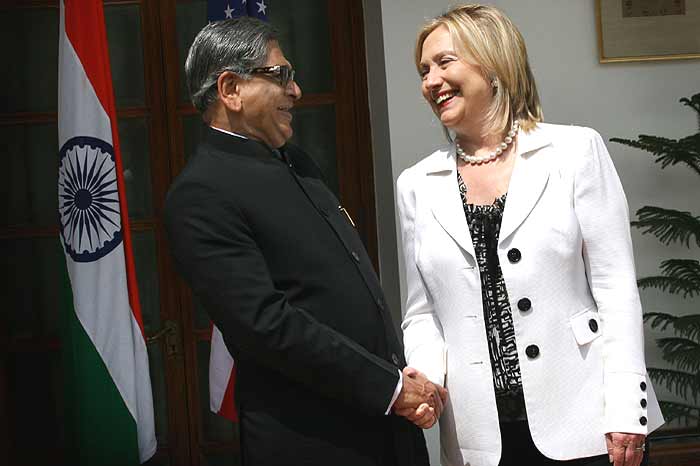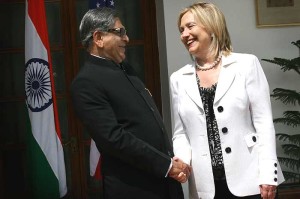Full Text of Letter, Signed by 31 US Legislators:
The Honorable Hillary Rodham Clinton
Secretary of State
U.S. Department of State
Washington, DC 20520
Dear Madam Secretary:
September 21, 2012
We write to express our concerns regarding reconciliation and accountability progress in Sri Lanka following its 26-year civil war and the alleged commitment of war crimes and crimes against humanity by both sides in the final stages of the conflict in 2009.
In the years since, steps have been taken both by the international community and the State Department to foster an atmosphere of atonement and to affect a return to normalcy. The report submitted by the Lessons Learned and Reconciliation Committee (LLRC) represented an initial move by the Sri Lankan Government to address the failure of the ceasefire agreement. The LLRC report became the basis for discussion for the March 22nd adoption of Resolution 19/L.2, “Promoting reconciliation and accountability in Sri Lanka,” at the 19th U.N. Human Rights Council (UNHRC) session. The resolution signaled an important step forward in placing additional pressure on the Government of Sri Lanka to implement constructive recommendations contained in the LLRC report, while also noting that the report failed to adequately address serious allegations of violations of international law.
Despite these initial steps toward reconciliation and accountability, we remain concerned that the Government of Sri Lanka will resist taking the good faith steps necessary to implement both its obligations under the UNHRC Resolution and the LLRC Report. Government ministers maintain that the LLRC overstepped its mandate and some claim that the government will take credible action on only a portion of the LLRC recommendations. For instance, the LLRC report criticizes the heavy militarization of the North and East. Three years after the end of the war, there is still a checkpoint for entrance to the North and frequent checkpoints throughout the region.
To add to these concerns, the”National Action Plan to Implement the Recommendations of the LLRC” released by the Government of Sri Lanka in July merely sets up further committees and organizational bodies to “consider” the LLRC recommendations, but does not mandate that specific actions be taken on even easily accomplishable recommendations, nor does it set firm timetables of any kind. Without persistent U.S. involvement, we fear these delay tactics will continue.
We are grateful for the leadership shown by the State Department regarding the UNHRC resolution and we acknowledge your efforts to dialogue with the Sri Lankan Foreign Minister to discuss the implementation of recommendations contained in the LLRC report.
However, we have some concerns with the State Department’s expressed policy moving forward. In previous responses to inquiries from Congressional offices, the Department has identified strong, specific instances of past engagement on issues of reconciliation and accountability, but is much less specific about future actions. While we appreciate the Department’s efforts to encourage reconciliation and constructive engagement between the Government of Sri Lanka and the international community, we are concerned that previous requests made by our colleagues in Congress, most notably important timetables and benchmarks, appointing a Special Envoy, and engaging with Tamil representatives, have not been prioritized.
As you know, Congress voiced its opinion on the matter when the Senate unanimously approved S. Res. 84 on March I, 20 I I. We are pleased with the passage of this legislation in the Senate, which calls for an independent investigation into reports of war crimes and crimes against humanity committed by both sides during and after the war. However, the findings and recommendations of such investigations are meaningless if they result in hollow rhetoric and empty promises that fail to move the reconciliation process forward in Sri Lanka.
Thus far, there is no indication that the UNHRC resolution has had any significant impact on the Sri Lankan government’s response to the issue. We believe that the State Department must ensure that its diplomatic efforts yield fruitful and meaningful results via further U.S. action and engagement on reconciliation and accountability in Sri Lanka. With the impending evaluation of Sri Lanka’s compliance with the UNHRC resolution in March 2013, there is an added sense of urgency to this request. It would be all too easy for the Rajapaksa administration to make excuses for failing to adhere to its obligations at the next HRC session without strong oversight from the State Department.
We respectfully urge you and your colleagues to purposefully and dynamically engage with the Government of Sri Lanka in advancing reconciliation and accountability and a return to peaceful stability. Thank you for your attention to this matter and for your timely response.
Sincerely,
Rep. Bill Jones (OH)
Rep. William Keating (MA)
Rep. Michael Grimm (NY)
Rep. Walter Jones (NC)

